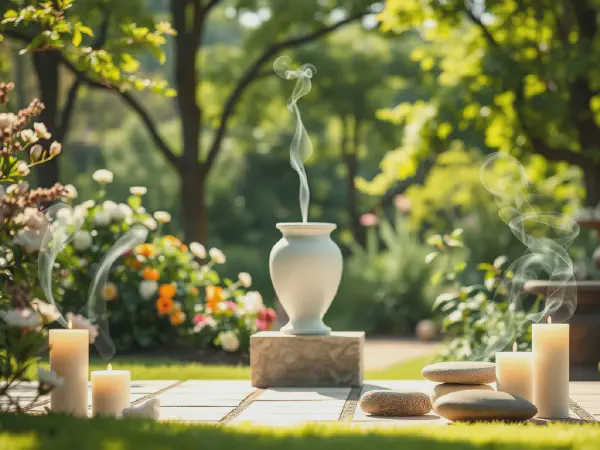Cremation Services: A Guide to Understanding the Process and Options

Cremation Services: A Guide to Understanding the Process and Options
Cremation services have become increasingly popular as an alternative to traditional burial. This article aims to provide a comprehensive guide to understanding cremation services, including the process, memorialization options, pre-planning, financial considerations, and the differences between cremation and burial.
Are you in search of reliable and trustworthy Cremation Services ? Wójcik's Funeral Chapel and Crematorium based in Winnipeg has been delivering exemplary services in ensuring lasting memories for your loved ones. Reach out today for more information on the process and what it entails.
Cremation services involve the process of reducing a deceased body to ashes through high temperatures. Unlike burial, where the body is interred in the ground, cremation offers a more flexible and personal approach to memorializing a loved one.
The process of cremation begins with the transportation of the deceased to a crematorium. Once there, the body is placed in a cremation chamber and subjected to extreme heat, typically between 1,400 to 1,800 degrees Fahrenheit. This intense heat reduces the body to bone fragments, known as cremated remains.
Cremation equipment and facilities play a crucial role in ensuring a dignified and efficient process. Modern cremation equipment is designed to minimize emissions and environmental impact. Cremation facilities are equipped with specialized chambers and filtration systems to ensure the safe handling of the deceased and the cremation process.
Legal regulations and permits govern the cremation process. These regulations vary by jurisdiction and are in place to ensure proper identification, documentation, and authorization. It is essential to work with a reputable cremation provider who adheres to all legal requirements and ethical practices.
The Process of Cremation
The cremation process involves several steps that ensure a respectful handling of the deceased. It begins with the proper identification and documentation of the body, followed by the transportation to the crematorium. Once at the crematorium, the body is placed in a cremation chamber and subjected to high temperatures. After the completion of the cremation, the bone fragments are processed into a fine powder, known as cremated remains, which are then placed in an urn or container.
Being faced with the task of planning a loved one's final journey can be challenging. Among the various options, the choice of Cremation Services with dignified ceremonies may provide the solace you need. Wójcik's Funeral Chapel and Crematorium is your go-to destination for such services, caring for your every need with compassion and grace.
Cremation equipment and facilities have advanced significantly in recent years. Modern cremation equipment is designed to operate efficiently and minimize environmental impact. Cremation facilities are equipped with advanced filtration systems that capture harmful emissions, ensuring compliance with environmental regulations.
The cremation process is regulated by various authorities, including local health departments and funeral service regulatory bodies. These regulations ensure that cremations are conducted safely and that the remains are handled appropriately. Cremation permits are required before the process can take place. The cremation provider is responsible for obtaining these permits and ensuring compliance with all legal requirements.
Memorialization Options
Memorial services and gatherings provide an opportunity for family and friends to honor and remember the deceased. These services can take place before or after the cremation process and may include rituals, speeches, music, and sharing of memories. Memorial gatherings can be held in a variety of settings, including funeral homes, churches, community centers, or private residences.
Cremation urns and keepsakes are used to hold the cremated remains. Urns come in a variety of designs and materials, including wood, metal, ceramic, and biodegradable options. Keepsakes, such as jewelry or small containers, allow families to share a portion of the cremated remains among loved ones.
Cremation jewelry and pendants provide a unique way to keep a loved one close. These jewelry pieces are designed to hold a small amount of the cremated remains or incorporate them into the design. Cremation jewelry can be customized to reflect the individual's personality or interests.
Pre-Planning and Pre-Arrangement
Pre-planning cremation services offers several advantages. It allows individuals to make their final arrangements, ensuring their wishes are known and followed. Pre-planning also relieves the burden on family members during an emotional time, as all decisions and arrangements have been made in advance.
Choosing a cremation provider is an important part of pre-planning. It is crucial to select a reputable and licensed provider who offers transparent pricing and adheres to all legal requirements. Researching providers, reading reviews, and comparing services can help in making an informed decision.
It's never easy to say goodbye. That's why it's vital to pick the right Cremation Services that ensure a respectful send-off. Click here to avail the services of Wójcik's Funeral Chapel and Crematorium in Winnipeg, which provides a wide range of packages to suit your needs. Get in touch to find out more.
Pre-paying for cremation services is another option to consider. Some individuals choose to pre-fund their cremation to alleviate the financial burden on their loved ones. Pre-paying allows for locking in current prices and ensures that funds are available when needed.
Cremation Costs and Financial Considerations
Dealing with the loss of a loved one can be hard, and deciding their final journey is a hefty responsibility. It's important to choose a memorable cremation service that honours the departed soul. Wójcik's Funeral Chapel and Crematorium in Winnipeg is an experienced provider that ensures each ceremony is personalised and heartfelt.
Understanding cremation service pricing is essential when considering cremation as an option. Costs can vary depending on factors such as the location, the cremation provider, additional services, and merchandise. It is crucial to request a detailed price list from the chosen provider and inquire about any additional fees or charges.
If you're exploring Cremation Services and are concerned about maintaining dignity and honour of the departed loved one, Visit Wójcik's Funeral Chapel and Crematorium . They not only manage the cremation but also help manage the ceremonies surrounding it, making sure the goodbye is as serene as the person themselves.
Comparing cremation costs to traditional burial is another aspect to consider. Cremation services are often more affordable than traditional burial, as they eliminate the need for a casket, burial plot, and headstone. However, it is important to weigh personal preferences, cultural or religious beliefs, and family traditions when making a decision.
Options for financing cremation services are available for those who may not have immediate funds. Some cremation providers offer payment plans or accept insurance assignments. Government assistance programs, such as Social Security or veterans' benefits, may also provide financial support for cremation services.
Cremation vs. Burial
Cremation and burial are two distinct methods of laying the deceased to rest. While burial involves interring the body in the ground, cremation reduces the body to ashes. The choice between cremation and burial often depends on personal preferences, cultural or religious beliefs, and environmental considerations.
Environmental considerations play a significant role in the decision-making process. Cremation has a smaller environmental impact compared to traditional burial, as it eliminates the use of embalming chemicals, reduces land use, and avoids the potential contamination of groundwater. However, cremation does require energy for the cremation process.
Cultural and religious perspectives on cremation vary. Some religions embrace cremation as an acceptable practice, while others prefer traditional burial. It is essential to consider cultural and religious beliefs when making end-of-life arrangements and to consult with religious leaders if necessary.
